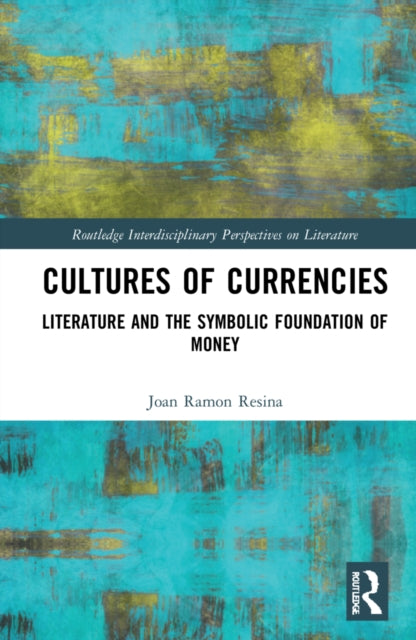Shulph Ink
Cultures of Currencies: Literature and the Symbolic Foundation of Money
Cultures of Currencies: Literature and the Symbolic Foundation of Money
YOU SAVE £7.68
- Condition: Brand new
- UK Delivery times: Usually arrives within 2 - 3 working days
- UK Shipping: Fee starts at £2.39. Subject to product weight & dimension
Bulk ordering. Want 15 or more copies? Get a personalised quote and bigger discounts. Learn more about bulk orders.
Couldn't load pickup availability
- More about Cultures of Currencies: Literature and the Symbolic Foundation of Money
The book explores the cultural relativity of economic concepts and the shift in the meaning of "market," "currency," "exchange," and "money," raising questions about exchange, currency, and money from a cultural perspective. It aims to contribute to a more comprehensive understanding of economic and monetary issues.
Format: Hardback
Length: 234 pages
Publication date: 11 March 2022
Publisher: Taylor & Francis Ltd
The book's premise goes beyond the widely accepted cultural relativity of economic concepts. It also observes that the current shift in the meaning of terms such as "market," "currency," "exchange," and "money" indicates a profound transformation in culture that holds unpredictable economic and political implications. The essays included in this book delve into fundamental questions surrounding exchange, including what is exchanged, by whom, through what mechanisms, what form of currency is employed, and indeed, what constitutes money and how it conveys and retains value over time. While these issues are central to economic theory, they have often been approached from a narrow, technical perspective. This book seeks to fill this gap by offering a diverse range of approaches that explore economic and monetary issues from a cultural perspective.
The significance of this book lies in its ability to shed light on the intricate relationship between culture and economics. By examining the cultural dimensions of exchange, the book challenges traditional economic theories that often overlook the cultural factors that shape economic behavior. It emphasizes the importance of considering the cultural context in which economic transactions occur, as it can have a significant impact on the outcomes and implications of those transactions.
One of the key themes explored in the book is the role of language in shaping economic concepts and practices. The authors argue that language plays a crucial role in the construction of economic meanings and that different languages can convey different understandings and interpretations of economic phenomena. This can lead to cultural differences in the way individuals perceive and engage with economic systems, as well as in the development of economic policies and regulations.
Another important aspect of the book is the exploration of the cultural values and beliefs that influence economic behavior. The authors argue that cultural values and beliefs shape individuals' attitudes towards money, work, consumption, and savings, and that these values and beliefs can have a significant impact on economic outcomes. For example, some cultures prioritize individualism and materialism, while others emphasize collectivism and social welfare. These cultural values and beliefs can influence the way individuals allocate resources, engage in economic transactions, and make decisions about their economic future.
The book also discusses the role of institutions and organizations in shaping economic behavior. The authors argue that institutions and organizations play a critical role in the development and implementation of economic policies and regulations, and that they can have a significant impact on economic outcomes. For example, the financial system the system, the legal system, and the educational system can all shape the way individuals engage with the economy, and can influence the distribution of wealth and income.
In conclusion, this book offers a valuable contribution to the field of economics by exploring the complex relationship between culture and economics. It provides a fresh perspective on traditional economic theories by highlighting the cultural dimensions of exchange and the role of language, values, beliefs, institutions, and organizations in shaping economic behavior. The book is an essential read for scholars, researchers, and policymakers interested in understanding the dynamics of the modern economy and the challenges posed by cultural diversity.
Dimension: 229 x 152 (mm)
ISBN-13: 9781032208824
This item can be found in:
UK and International shipping information
UK and International shipping information
UK Delivery and returns information:
- Delivery within 2 - 3 days when ordering in the UK.
- Shipping fee for UK customers from £2.39. Fully tracked shipping service available.
- Returns policy: Return within 30 days of receipt for full refund.
International deliveries:
Shulph Ink now ships to Australia, Belgium, Canada, France, Germany, Ireland, Italy, India, Luxembourg Saudi Arabia, Singapore, Spain, Netherlands, New Zealand, United Arab Emirates, United States of America.
- Delivery times: within 5 - 10 days for international orders.
- Shipping fee: charges vary for overseas orders. Only tracked services are available for most international orders. Some countries have untracked shipping options.
- Customs charges: If ordering to addresses outside the United Kingdom, you may or may not incur additional customs and duties fees during local delivery.


